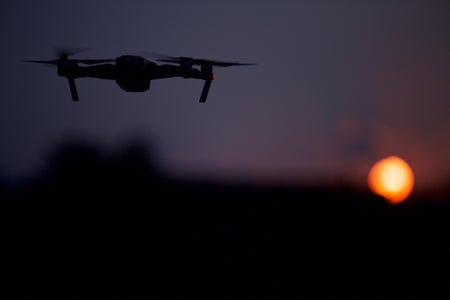
What Are the Mystery Drones Reported over New York State and New Jersey?
Reports of unidentified flying objects in the northeastern U.S. are on the rise, but so far officials have few answers for alarmed residents
Lee Billings is a science journalist specializing in astronomy, physics, planetary science, and spaceflight, and is a senior editor at Scientific American. He is the author of a critically acclaimed book, Five Billion Years of Solitude: the Search for Life Among the Stars, which in 2014 won a Science Communication Award from the American Institute of Physics. In addition to his work for Scientific American, Billings's writing has appeared in the New York Times, the Wall Street Journal, the Boston Globe, Wired, New Scientist, Popular Science, and many other publications. A dynamic public speaker, Billings has given invited talks for NASA's Jet Propulsion Laboratory and Google, and has served as M.C. for events held by National Geographic, the Breakthrough Prize Foundation, Pioneer Works, and various other organizations.
Billings joined Scientific American in 2014, and previously worked as a staff editor at SEED magazine. He holds a B.A. in journalism from the University of Minnesota.

What Are the Mystery Drones Reported over New York State and New Jersey?
Reports of unidentified flying objects in the northeastern U.S. are on the rise, but so far officials have few answers for alarmed residents
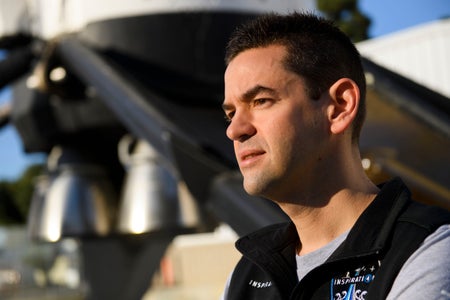
Who Is Jared Isaacman, President-Elect Trump’s Pick to Lead NASA?
NASA’s presumptive next leader, billionaire private astronaut Jared Isaacman, already has big plans for the space agency
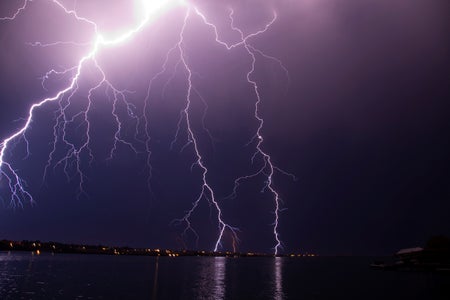
Mysterious Gamma-Ray Flashes May Be Missing Link for Lightning Bolts
Observations from a retrofitted spy plane hint at a connection between powerful gamma-ray flashes and a thunderstorm’s lightning
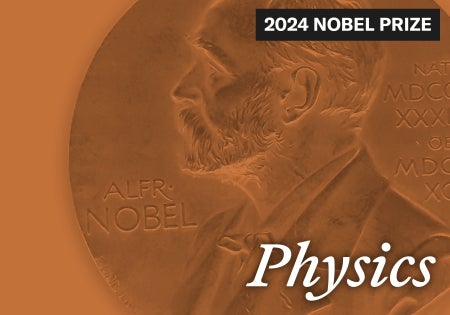
Nobel Prize in Physics Awarded for Breakthroughs in Machine Learning
The 2024 Nobel Prize in Physics was given to John Hopfield and Geoffrey Hinton for development of techniques that laid the foundation for revolutionary advances in artificial intelligence
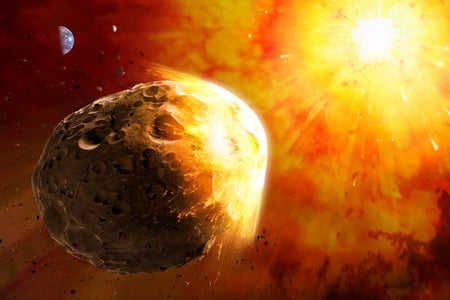
Can Scientists Save the World from an Apocalyptic Asteroid Strike?
Sooner or later a doomsday asteroid will wipe out most life on Earth—unless, that is, we prevent threatening space rocks from hitting us in the first place
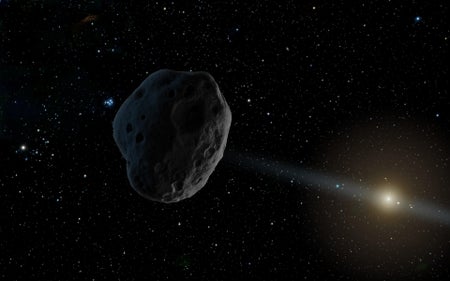
Meet Earth’s New Mini Moon
A small asteroid, 2024 PT5, will spend the next two months alongside our planet as a mini moon before swooping back to deep space
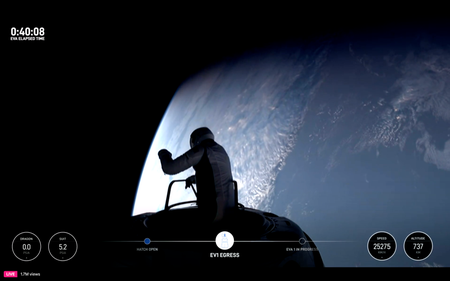
Polaris Dawn’s First Private Space Walk Was a Stellar Success
The world’s first commercial space walk, performed by billionaire Jared Isaacman and SpaceX engineer Sarah Gillis, tested new technology and was practically flawless
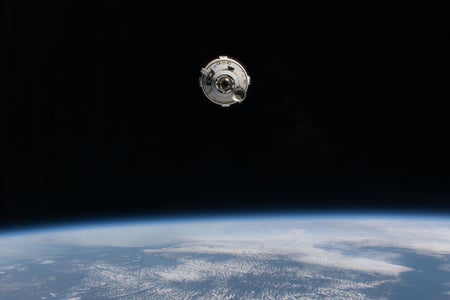
Starliner Spacecraft Safely Returns to Earth, sans Astronauts
Starliner’s first crewed test flight has concluded with a successful touchdown—and two astronauts still in orbit awaiting a different ride home
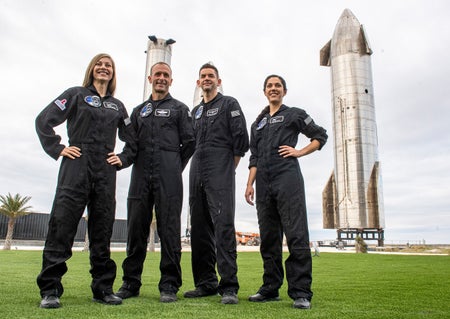
Polaris Dawn Is the Most Ambitious—And Risky—Private Spaceflight Yet
The Polaris Dawn mission—a partnership between SpaceX and billionaire Jared Isaacman—will soar to historic heights and attempt the first-ever commercial spacewalk
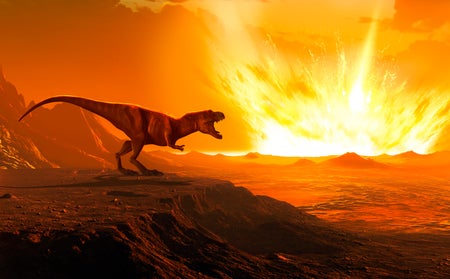
We Know the Origins of the Asteroid That Killed the Dinosaurs
New evidence points to a carbonaceous asteroid from the outer solar system as the culprit for Earth’s most recent mass extinction
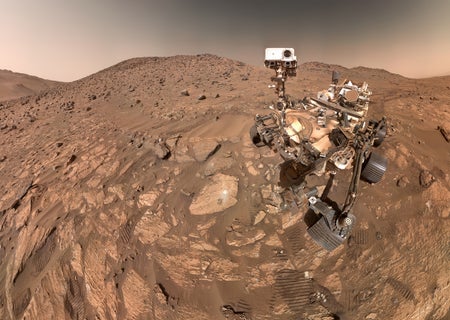
This Is the Most Exciting Rock Ever Found on Mars
Mysterious “leopard spots” on a Martian rock could be evidence of extraterrestrial life—or of mere lifeless chemistry. Finding out the truth may require bringing the rock back to Earth
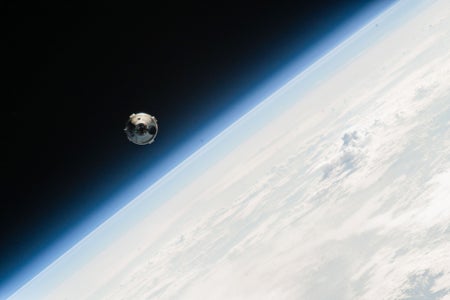
How Worried Should We Be about Starliner’s Stranded Astronauts?
On its first crewed flight, troubling technical glitches with Boeing’s Starliner spacecraft have left two astronauts in limbo onboard the International Space Station
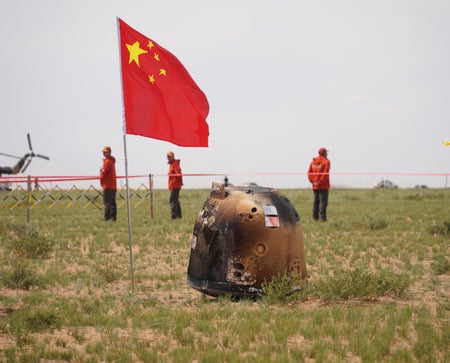
China Makes History with First-Ever Samples from the Moon’s Far Side
China’s Chang’e 6 mission has successfully returned samples from the moon’s far side, opening a new phase of the nation’s lunar space race with the U.S.
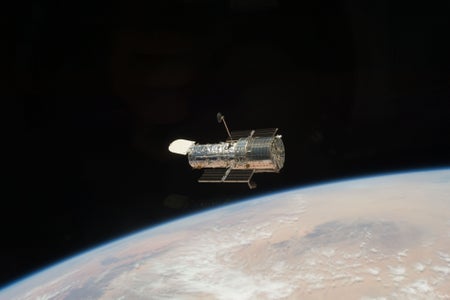
NASA Refuses Hubble Rescue Mission and Trims the Space Telescope’s Science
Failing hardware on NASA’s Hubble Space Telescope may lead to less science, officials say, but the space agency isn’t ready to pursue a private repair mission
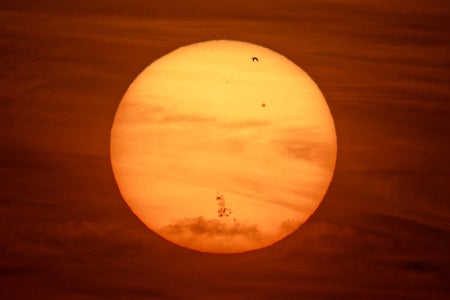
The Science of Heliophysics Demands Its Moment in the Sun
NASA’s head of heliophysics explains how we weathered the worst solar storm of a generation—and discusses the challenges we face in preparing for the next one
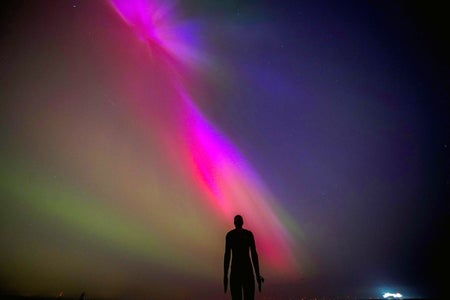
The Strongest Solar Storm in 20 Years Did Little Damage, but Worse Space Weather Is Coming
Years of careful planning helped safeguard against last weekend’s severe space weather, but we still don’t know how we’d cope with a monster event

Can Scientific Thinking Save the World?
A physicist, a philosopher and a psychologist are working together to bring better, smarter decision-making to the masses
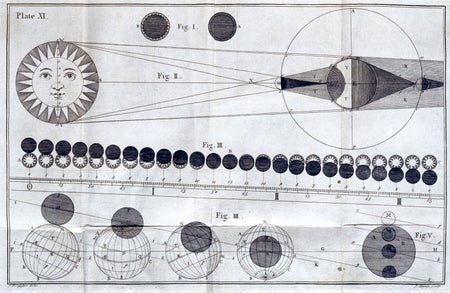
It’s Not Just You: Three Times Eclipses Left Scientists ‘More or Less Agog’
Total solar eclipses have set the stage for major scientific advancements—everything from the discovery of helium to the testing of Einstein’s general theory of relativity.
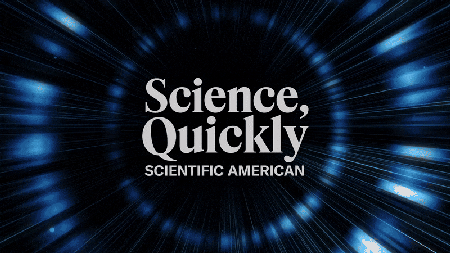
The Great Debate: Could We Ever Travel through Time?
Our space and physics editors go head-to-head over a classic mind-bending question.
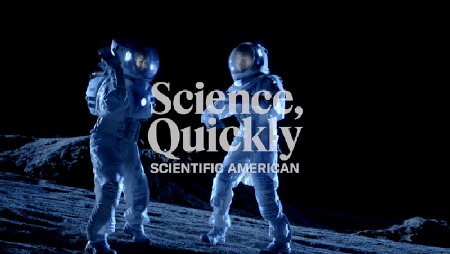
When Will We Finally Have Sex In Space?
We're talking about the big bang—but not in the way you might think.
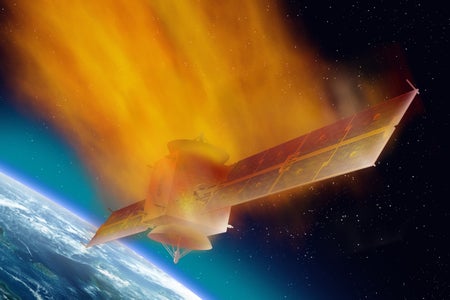
Space Junk Is Polluting Earth’s Stratosphere with Vaporized Metal
Defunct satellites and other pieces of orbital debris are pumping metals into Earth’s fragile upper atmosphere, with effects unknown
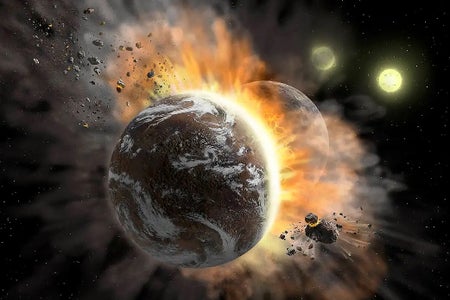
Astronomers May Have Witnessed Worlds in Collision
A planet-vaporizing impact is the leading explanation for a distant star’s curiously fluctuating light

Here’s What Oppenheimer Gets Right—And Wrong—About Nuclear History
Here’s what a historian who has studied J. Robert Oppenheimer for two decades has to say about the new Christopher Nolan film on the father of the atomic bomb.
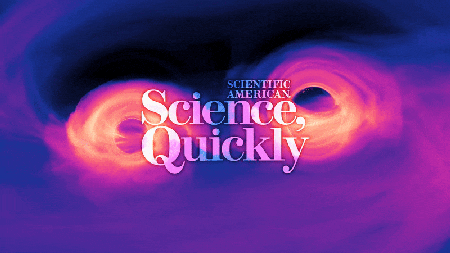
The Universe Is Abuzz with Giant Gravitational Waves, and Scientists Just Heard Them (Maybe)
Researchers, using the galaxy as a detector, believe they have detected gravitational waves from monster black holes for the first time.